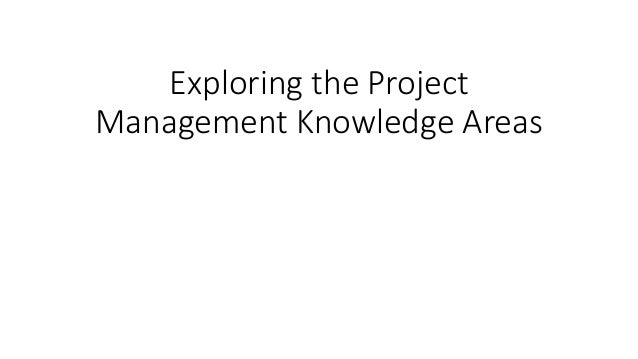Exploring the Project Management Knowledge Areas.pdf
•
0 likes•4 views
A Guide to the Project Management Body of Knowledge (PMBOK® Guide), these processes into 10 categories that it calls the Project Management Knowledge Areas. These groupings, or Knowledge Areas, bring together processes that have characteristics in common. For example, the Project Cost Management Knowledge Area involves all aspects of the budgeting process, as you would suspect.
Report
Share
Report
Share
Download to read offline

Recommended
Recommended
More Related Content
More from Divya Malik
More from Divya Malik (20)
What difference between a Project Manager and a.pdf

What difference between a Project Manager and a.pdf
Project Management Professional (PMP)® exam preparation.pdf

Project Management Professional (PMP)® exam preparation.pdf
Project Leader Roles and Responsibilities in Project Management.pdf

Project Leader Roles and Responsibilities in Project Management.pdf
5 Reasons Companies Look for PMP Certified Managers.pdf

5 Reasons Companies Look for PMP Certified Managers.pdf
Top 10 Reasons Why You Should Go into Project Management

Top 10 Reasons Why You Should Go into Project Management
Introduction to Qualitative Risk Analysis for the PMP.pdf

Introduction to Qualitative Risk Analysis for the PMP.pdf
Why Renewing Your PMP® Certification is Important2.pdf

Why Renewing Your PMP® Certification is Important2.pdf
What are the Project Management Knowledge Domains.pdf

What are the Project Management Knowledge Domains.pdf
The Importance of Work Packages in Project Scope.pdf

The Importance of Work Packages in Project Scope.pdf
8 Ways Highly Successful Project Managers Add Value.pdf

8 Ways Highly Successful Project Managers Add Value.pdf
Exploring the Project Management Knowledge Areas.pdf
- 1. Exploring the Project Management Knowledge Areas
- 2. • We talked about the five process groups and They are Initiating, Planning, Executing, Monitoring and Controlling, and Closing. Each process group is made up of a collection of processes used throughout the project lifecycle. • A Guide to the Project Management Body of Knowledge (PMBOK® Guide), these processes into 10 categories that it calls the Project Management Knowledge Areas. These groupings, or Knowledge Areas, bring together processes that have characteristics in common. For example, the Project Cost Management Knowledge Area involves all aspects of the budgeting process, as you would suspect.
- 3. • Therefore, processes such as Estimate Costs, Determine Budget, and Control Costs belong to this Knowledge Area. Here’s the tricky part: These processes don’t belong to the same project management process groups (Estimate Costs and Determine Budget is part of the Planning process group, and Control Costs is part of the Monitoring and Controlling process group). Think of it this way: Knowledge Areas bring together processes by commonalities, whereas project management process groups are more or less the order in which you perform the project management processes (although remember that you can come back through these processes more than once). The PMBOK® Guide names the
- 4. 10 Knowledge Areas as follows: • Project Integration Management • Project Scope Management • Project Time Management • Project Cost Management • Project Quality Management • Project Human Resource Management • Project Communications Management • Project Risk Management • Project Procurement Management • Project Stakeholder Management
- 5. Project Scope Management: • The Project Scope Management Knowledge Area has six processes, • Collect Requirements: Planning • Define Scope: Planning • Create WBS: Planning • Validate Scope: Monitoring and Controlling • Control Scope: Monitoring and Controlling
- 6. • Project Scope Management is concerned with defining all the work of the project and only the work needed to successfully produce the project goals. These processes are highly interactive. They define and control what is and what is not part of the project. Each process occurs at least once—and often many times—throughout the project’s life.
- 7. The Project Time Management Knowledge Area has seven Processes: • Plan Schedule Management: Planning • Define Activities: Planning • Sequence Activities: Planning • Estimate: Activity • Resources: Planning • Estimate: Activity • Duration: Planning • Develop Schedule: Planning • Control Schedule: Monitoring and Controlling
- 8. • This Knowledge Area is concerned with estimating the duration of the project activities, devising a project schedule, and monitoring and controlling deviations from the schedule. • Collectively, this Knowledge Area deals with completing the project in a timely manner. Time management is an important aspect of project management because it concerns keeping the project activities on track and monitoring those activities against the project management plan to ensure that the project is completed on time.